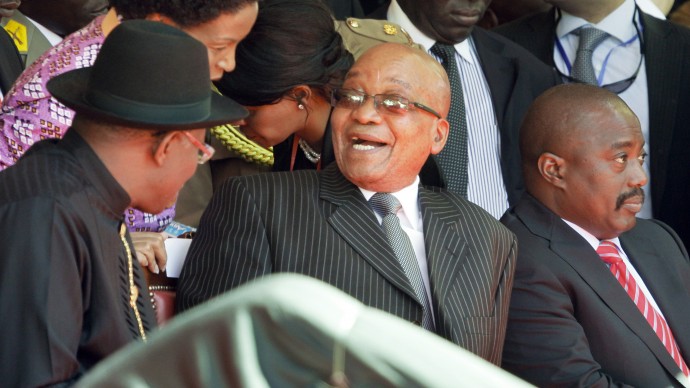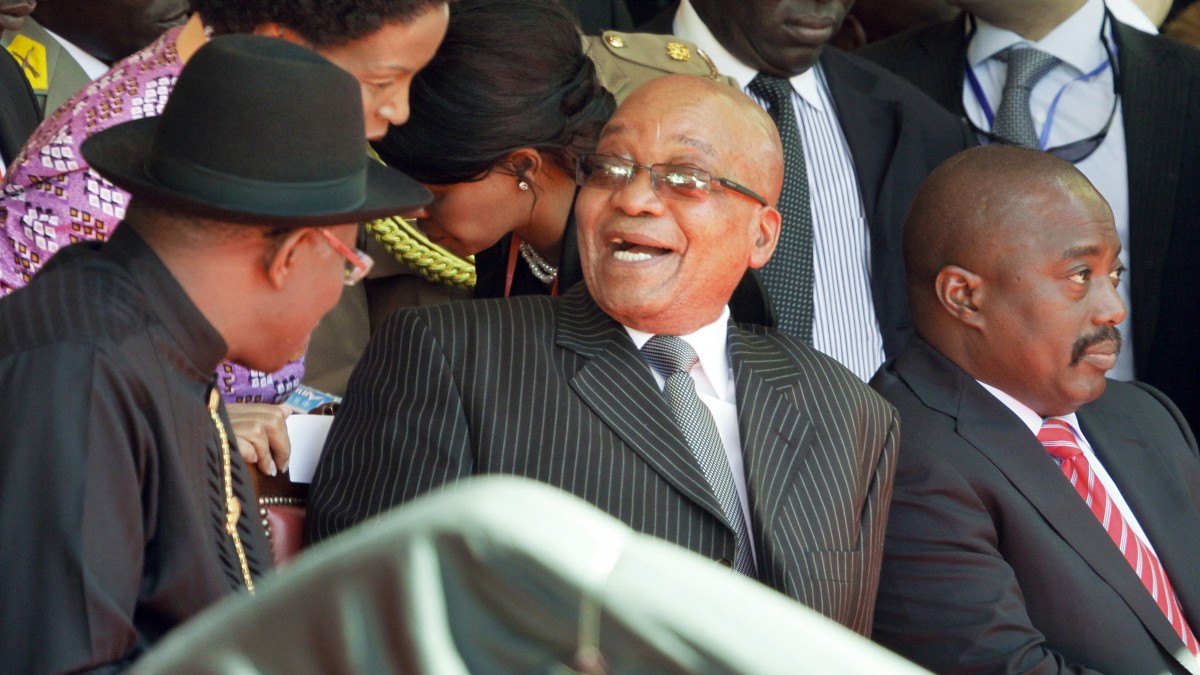
A large coalition of African groups are pressuring African nations to uphold allegiance to the International Criminal Court (ICC) in the midst of a pushback by countries who see the outside legal body as a threat.
“We, the undersigned 163 African civil society organizations and international organizations with representatives in 36 African countries, write to urge your government to affirm its support for the ICC and the court’s treaty, the Rome Statute, during the extraordinary AU summit on the ICC scheduled for October 11-12, 2013,” a letter to African state parties to the ICC, signed by organizations like Amnesty International Benin and the Burundi Coalition for the ICC, states.
The support comes as the divide between African countries and the ICC grows, with some claiming the court is taking a heavy-handed approach against African nations, testing their sovereignty and putting policymakers on the line for outside persecution.
“There are strong passions around this issue,” Steven Gruzd of the South African Institute of International Affairs told the BBC. “The countries that are most vocal in their opposition to the ICC are in East Africa — Kenya, Sudan and Uganda. West African countries like Nigeria and Ghana are more supportive of the court.”
Why the pushback?
Kenya is at the forefront of the battle — its president, Uhuru Kenyatta, is set to appear before the ICC in November regarding charges of crimes against humanity for his role in the violence that erupted in the nation after the 2007-08 election. His running mate, William Ruto, is also facing charges with the ICC.
“Kenya faces serious challenges with implementing its new constitution and police reforms,” Human Rights Watch states on its site. “Kenya’s military incursion into Somalia sparked retaliatory attacks, allegedly by supporters of the Somali Islamist group al-Shabbab. Kenya’s forces often responded by arbitrarily arresting and beating Somalis in Kenya’s refugee camps.”
Those on the line with the ICC like Kenyatta consider withdrawal from the court a way to limit outside involvement in fledgling democracies.
Yet groups voicing their support for the ICC claim that withdrawal from the international court would lead African nations further down a road of chaos, with civilians paying the ultimate price.
These groups see the ICC, existing in 34 African countries, as a final option for countries unable to quell human rights abuses. According to HRW, violence that erupted in Kenya following its 2007 elections served as an example of when an international court is needed.
“We believe any withdrawal from the ICC would send the wrong signal about Africa’s commitment to protect and promote human rights and reject impunity as reflected in article 4 of the AU’s Constitutive Act,” the letter states.
The African Union and the push away from the ICC
On Friday, African Union members gathered, in part to discuss the ICC and its role in African conflict resolution.
In September, one African Union official indicated there was a possibility its 34 member states that are subject to the ICC would withdraw their allegiance to the Rome Statute, prompting Africans in support of ICC involvement to speak up.
Not everyone at the meeting, however, was moving in the direction of support.
“We should not allow the ICC to continue to treat Africa and Africans in a condescending manner,” Ethiopian Foreign Minister Tedros Adhanom said at Friday’s opening AU meeting. “Far from promoting justice and reconciliation, and contributing to the advancement of peace and stability in our continent, the court has transformed itself into a political instrument targeting Africa and Africans.”
Other leaders offered a more of an attitude of compromise, claiming that African nations would be more supportive of the ICC if it responded to countries’ requests, rather than using its own discretion.
“The general feeling is that the African member states … would rather prefer an ICC that would be responsive to our requests,” Algerian Foreign Minister Ramtane Lamamra said at the EU meeting, according to Reuters.
According to HRW, five African states have gone to the ICC to request investigation into crimes committed within their borders.
The letter written by the 163 African groups in favor of continued ICC involvement addresses the issue, but warns that the long-term consequences of withdrawal could lead African nations down the very path they attempt to stay away from.
“A key criticism raised by some African leaders is that the court is targeting Africa,” it states. “While the ICC’s cases are entirely from Africa, the majority came before the court as a result of requests by the states where the crimes were committed.”
Those states are Uganda, the Democratic Republic of Congo, Central African Republic and Mali, to name a few.
Since 2002, the ICC has opened investigations in eight countries and issues two verdicts, both of which came down on African leaders, one being Thomas Lubango Dyilo, leader of the Congolese Patriotic Union, who was found guilty of utilizing child soldiers. The other was Mathieu Ngudjolo, a Congolese rebel leader who was later acquitted.
“Two other situations — Libya and Darfur, Sudan — were referred by the United Nations Security Council, with the support of its African members,” the letter states. “Kenya is the only situation where the ICC Office of the prosecutor acted on its own initiative, but only with the approval of the ICC pre trial chamber after Kenya failed to take action to ensure justice domestically.”
Because African nations have been overwhelmingly in favor of the ICC in the midst of internal conflicts that have spun out of control, they have represented a majority of the cases taken on by the international court. Larger nations, including Russia and China, have been resistant to the ICC, failing to sign on to the Rome Statute.
Where do they go from here?
While human rights groups are urging member states to stick with the ICC, there is still a possibility those nations will walk.
As of Friday, it was unclear whether AU nations not party to the ICC would continue to pressure member states to break their ties with the Rome Statute.
Hailemariam Desalegn, prime minister of Ethiopia, was among those attempting to discredit the court. Not a party to the Rome Statute, Desalegn indicated that only those who are still a party to the Rome Statute have the ability to make the change.
“That is up to those members of the ICC who have signed the Rome Statute,” he told Reuters.
In all, 34 African countries are signatories to the statute, representing a significant portion of the 60 nations that have ratified the treaty. Nations that have lobbied against the ICC, including the U.S., argue that it imposes on their sovereignty.
“Southern Africa was at the forefront of pressing for a permanent international criminal court,” International Criminal Justice Program Project lawyer Angela Mudukuti of the Southern Africa Litigation Center said in a HRW press release. “South Africa and other Southern African Development Community members should press the AU to work to expand the reach of justice, not cripple it.”
The ICC is essentially only in its infancy stages, as well, indicating that a withdrawal from African nations would have an impact on the ability of it to function.


